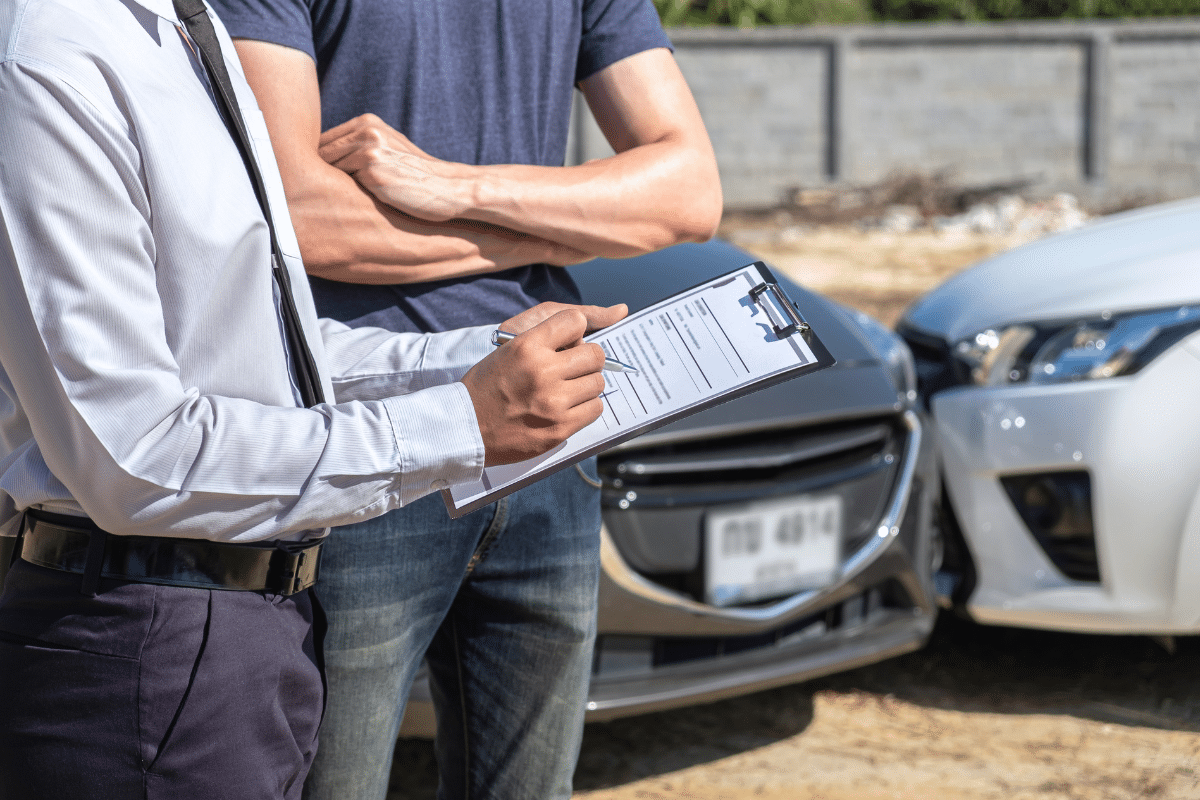The Car Crash Experts at Cooper Hurley Injury Lawyers will help you explore your full legal rights and options after a motor vehicle accident. If you are involved in an accident with an uninsured motorist, we can help you secure compensation through your UM coverage. Call (757) 333-3333 or reach out online to schedule your free, no-obligation consultation.
KEY TAKEAWAYS
- Virginia will soon require drivers to carry liability auto insurance.
- Uninsured motorist coverage lets you file a claim against your own auto policy for bodily injuries or property damage caused by uninsured or unidentified drivers.
- Alternative compensation sources in Virginia car accidents may include MedPay, health insurance, collision and comprehensive coverage, workers’ compensation, and a civil lawsuit.
Uninsured Motorist Coverage in Virginia
As the name suggests, uninsured motorist coverage is designed to protect you if you’re involved in an accident with a driver who doesn’t have insurance. It will also kick in if you are struck by an unidentifiable driver in a hit and run accident.
How Does Uninsured Motorist Coverage Work?
Let’s say you’re driving through an intersection, and another car runs a red light and crashes into your vehicle. After the accident, you exchange information, but when you contact the other driver’s insurance company, you discover that they don’t have any insurance coverage at all.
Without uninsured motorist coverage:
- You would typically have to rely on other insurance policies to cover your damages.
- Depending on your coverage, you might have to pay for your medical expenses, vehicle repairs, and other losses out of pocket.
With uninsured motorist coverage:
- You would file a claim with your own insurance company under your uninsured motorist policy.
- Your insurance company would then step in to cover your medical bills, lost wages, pain and suffering, and other damages resulting from the accident.
- The coverage limit for uninsured motorist benefits would depend on the limits you chose when you purchased your policy.
For example, let’s say you have uninsured motorist coverage with a policy limit of $100,000. If your medical expenses, lost wages, and other damages total $90,000, your uninsured motorist coverage will cover these costs. If your damages exceed the policy limit, you may be responsible for the remaining expenses unless you have additional coverage or pursue other legal options.
In summary, uninsured motorist coverage provides a safety net in situations where the at-fault driver lacks insurance coverage. This protects you from being left high and dry due to someone else’s negligence.

ASK THE CAR CRASH EXPERTS - WHAT IS UNIQUE ABOUT PROVING FAULT IN VIRGINIA?
Daniel Jarman, Vice President of Operations
“Uninsured motorist coverage is provided as a way to protect you in the event that someone else does not have insurance or doesn’t have enough insurance to cover your claims. This often ignored coverage can be critical in protecting yourself from others’ negligence and poor choices in insurance coverage. This coverage pays when someone else cannot, and it is also cheap, so keep those limits high when possible.”
What is the Difference Between Uninsured and Underinsured Motorist Coverage?
Virginians sometimes confuse uninsured and underinsured motorist coverage. These are related forms of insurance, and their differences are quite simple: uninsured motorist (UM) coverage protects you when the at-fault driver doesn’t have any insurance, while underinsured motorist (UIM) coverage protects you when the at-fault driver’s insurance coverage is simply insufficient to cover all of your damages.
All Virginia auto policies must include uninsured motorist coverage. Importantly, insurers in the commonwealth cannot raise your premium for accidents you did not cause.
Minimum Auto Insurance Coverage in Virginia
Drivers in Virginia will no longer have the option to pay into the Uninsured Motorist Fund to legally drive without insurance. SB 951 repeals the option to register uninsured vehicles for a fee starting on July 1, 2024.
All drivers will need to purchase auto liability insurance, meeting certain minimum coverage requirements. Though set to increase for policies issued on or after January 1, 2025, the current coverage minimums are as follows:
- Bodily injury liability – The minimum requirement is $30,000 for bodily injury or death to one person in any one accident and $60,000 for bodily injury or death to two or more people.
- Property Damage Liability – This pays for damage you cause to someone else’s property. The minimum requirement is $20,000 per accident.
Your auto insurance policy must also include uninsured motorist coverage. If your auto liability liability coverage exceeds the required minimums, your policy’s uninsured motorist coverage must match unless you reject the additional coverage by notifying the insurer.
Other Sources of Compensation After a Car Accident
Beyond uninsured motorist coverage and liability coverage, there are several other potential sources of compensation in a car accident, depending on the circumstances. Our knowledgeable Virginia personal injury lawyer will help you explore every potential source of compensation, including:
- Medical Payments Coverage – MedPay helps pay for medical expenses resulting from a car accident, regardless of fault. It can be used to cover medical bills and lost wages.
- Health Insurance – If you have health insurance, it can cover medical expenses resulting from a car accident. This includes hospital bills, doctor’s visits, surgeries, medications, and rehabilitation services.
- Collision Coverage – If you have collision coverage as part of your auto insurance policy, it can help pay for repairs to your vehicle, regardless of fault in the accident.
- Comprehensive Coverage –Comprehensive coverage can help pay for damages to your vehicle caused by incidents other than collisions, such as theft, vandalism, or natural disasters.
- Rental Reimbursement Coverage – If your car is in the shop for repairs after an accident, rental reimbursement coverage may help cover the cost of renting a temporary replacement vehicle.
- Medicaid/Medicare – If you are enrolled in Medicaid or Medicare, these programs may cover some of your medical expenses resulting from a car accident.
- Workers’ Compensation – If the accident occurred while you were driving for work-related purposes, you may be eligible for workers’ compensation benefits to cover medical expenses, disability, and lost wages.
- Civil Lawsuit – If the other driver was at fault in the accident and you have suffered significant damages not covered by insurance, we can help you file a civil lawsuit to seek compensation for medical expenses, lost wages, pain and suffering, and other losses.
It’s essential to review your insurance policies carefully and understand the coverage available to you. Consulting with our skilled car accident attorneys can help you determine the best course of action for seeking compensation.
Trust the Team at Cooper Hurley Injury Lawyers With Your Insurance Questions
The Car Crash Experts at Cooper Hurley Injury Lawyers are standing by to ensure you know your full legal rights and options. We have a strong track record of securing high-value case results for car accident victims, including the largest reported recovery in Virginia for a single car accident victim in 2020.
Call (757) 333-3333 or reach out online to schedule your free, no-obligation consultation. Our team will assess the circumstances of your case, identify all potential sources of compensation, answer your questions, and help you get started down the road toward compensation.



